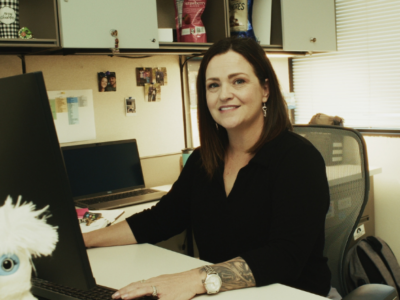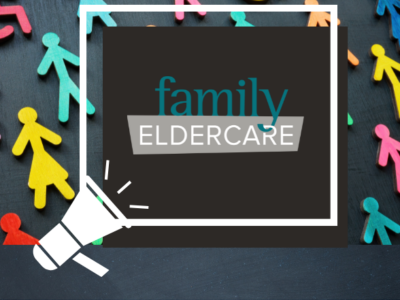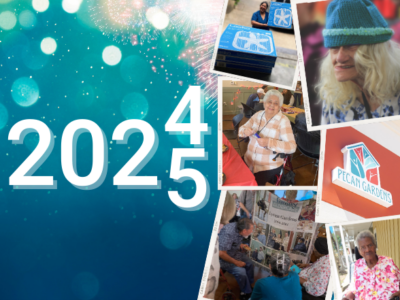Social Work Month in March is a time to celebrate social workers and their dedication to service. We asked Family Eldercare social workers to share their stories of why they chose to pursue the profession and received a diverse array of responses.
“My childhood desire ‘to help’ sprang from my mom’s teachings about social injustice and truth-telling.” Cristina Coupal, LMSW, said when asked why she became a social worker. “Later in life, my grandma, for whom I was a live-in caregiver, convinced me to work with older adults even after her death. So, I took an entry-level senior services job and loved it! But I couldn’t afford my basic needs. Looking elsewhere, I noticed my favorite job postings required a social work degree. I pursued social work for the money – seriously! Like many white women in social work, however, I have a lot of privilege the clients I serve have had to survive without. Today, I try ‘to help’ myself step back from my narrow experience so I can better support the clients I serve, and more effectively counter the systems that harm our community. When everybody’s elders have a place to live and space to heal, that’s when I’ll send my grandma the message, I’m trading in social work to be a campground host.”
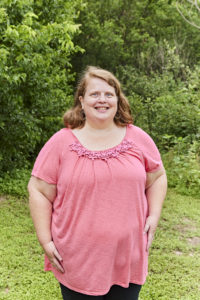
Emily Habermehl, LMSW, shared that her reason for becoming a social worker originated when she was a child during an outing with her family in downtown Philadelphia. “While we were walking down the street, my father was approached by a man experiencing homelessness. Instead of asking for change, this man wanted to compliment my dad on his ‘beautiful family.’ My father thanked the man, and he walked off into nowhere, it didn’t seem like he had anywhere to go. Being only around the age of 8, I asked my mother who that man was and why did he approach us? “He doesn’t have what we have, he was telling us what a great family your dad has, and we are lucky. Not everyone has what they need, not everyone has what we have. We’re very lucky, Emily.”
“This concept of ‘luck’ stuck with me. How some people don’t have what they need by no fault of their own. My family had everything we needed, and this meant we were in a place of privilege. Why us? Why not that man?”
“I believe that the duty of every social worker is to even the playing field for the disenfranchised. These two events from my childhood forced me into action as an adult. How does one reach those that are often hidden from society? How does one assist those that society has deemed unworthy, unsightly, and beyond help? How do we as a society include and empower those without hope?”
“Every day I am reminded that licensed social workers are unique in that our code of ethics includes a strong commitment to social justice. I believe that if you are not part of the solution, you are a part of the problem. There are ways to assist those in need every single day. That is why I decided to become a social worker.”
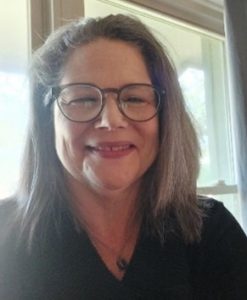
It was spending a lot of time with her Italian-American family in Illinois where Michelle Morgan, LBSW, saw how being deeply committed to civic organizations and social justice and desired to be engaged with those they were helping. “Their display of socialness taught me about what a true sense of community meant.”
In high school, she read a lot on politics, especially the Watergate Scandal, but It wasn’t until college where she realized that she wanted to be working with people. “As many people do, I took multiple inventory test which all aligned with the helping professions. While pursuing my degree in social work, I found that the classes and values were a fantastic fit. I went on the pursue opportunities that allowed me to work with individuals with disabilities. I had the privilege of tutoring a paraplegic peer who had cerebral palsy and went on to assist him with many things outside of the classroom. He became what felt like family and it all guided me towards working with individuals with disabilities. To be a little part in the chapter of someone’s life is what drives me. To be a social worker is a gift.”
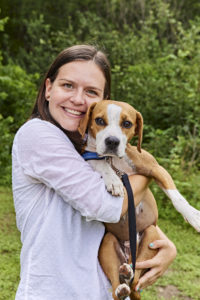
It was April 2016 when Blake Smith, LMSW, found herself sitting in an emergency room with her grandmother after complications related to her recent stroke, listening to the hospital’s social worker as she explained the available options.
“Nothing being offered gave her both the freedom she craved and the care she needed. I felt helpless and unprepared, even though I had been working for years as a health policy expert in Washington, DC. I thought about how challenging aging and disability would be for someone who didn’t have the same resources as my grandma – which included a granddaughter with a college degree and a successful career in health policy.”
She began reading more about aging and caregiving, and how broken that system was. How both the caregivers (frequently immigrant women of color) and care recipients (older adults and people with disabilities) are being exploited. There she was starting to see the limits of federal policy, and how important it was to understand the impacts of systems on the people directly affected. “Today, I get to work closely with other social workers, advocates, and direct service providers, helping advocate for our community and make Austin a more supportive place to live and age.”
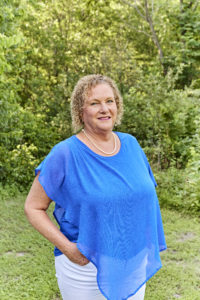
It was 1983 when Cheryl Young, LMSW-S, received her LBSW. “I’ve been doing this social work thing for a long time!”
“I think it started as most social workers would say with a strong desire to help people.” During college, she was asked by a friends mom, “why don’t you go into something else because you will never make any money in social work?” She replied, “well I may not make a lot of money, but there will always be people who need help so I will always have a job!”
Cheryl has been blessed with a long and diverse career in Social Work. “I have worked at psychiatric hospitals, both private and state, with children, persons with IDD, and deaf adults. I have worked in a medical hospital in the Emergency department and on the floor. I have worked in Home Health and Hospice and have had the privilege to be at the bedside of many amazing people as they have died. For the past 11 years I have had the honor to develop and lead an amazing team of Clinical Social Workers at Family Eldercare. We were among the first in the Austin area to provide in home counseling to homebound older adults who would not be able to see a therapist if we didn’t get to their home.”
“Some of the most gracious, thoughtful, intelligent, and caring people I have met and/or worked with have been Social Workers and I am grateful for the opportunity to work alongside and learn from some of the best people I know! I am honored to be a Social Worker and celebrate with other Social Workers in March and every day of the year.”
